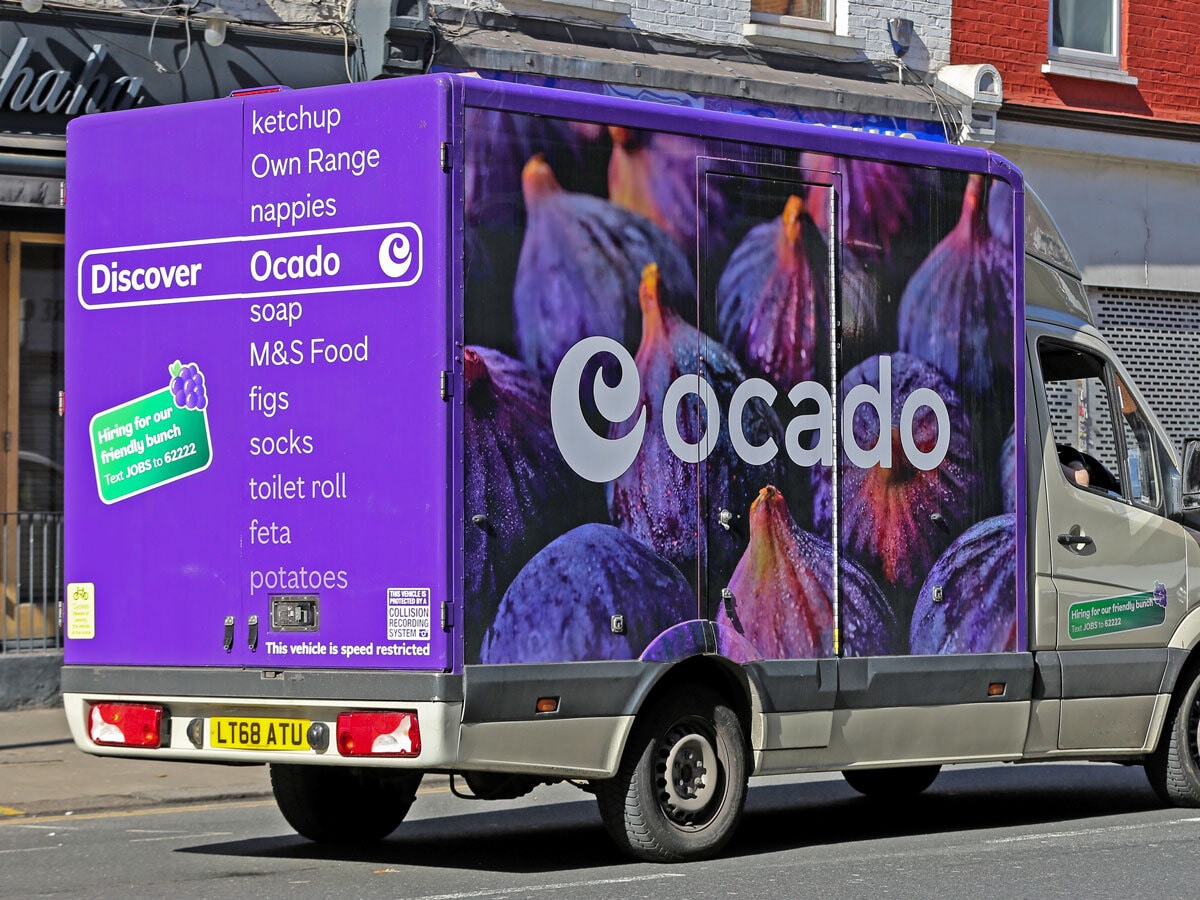Ocado’s share price managed to register some gains last week, as the online grocer reported first quarter growth in its retail business. This marks a reversal in its fortunes, following a prolonged slump in the stock. Whether the grocer can maintain growth remains to be seen, with customers feeling the inflationary pinch, although the real question is if Ocado’s Solutions business will ever become profitable.
Ocado’s [OCDO.L] share price has had a poor year. Year-to-date the stock is down over 13%, closing Friday 31 March at 535p. Over the 12-month period things are even worse, with Ocado shares down 54.68%—a decline that widens to over 74% on a two-year timeframe, the share price having opened at 2,084p on 6 April 2021.
The pandemic had driven up the share price, as Ocado was one of few solutions open to stuck-at-home customers in need of online grocery shopping. Now the boom times of the pandemic are a way off, with the stock trading at levels last seen in April 2018.
Yet despite the disappointing form, Ocado’s share price actually managed to climb over 21% last week. It may be unlikely ever to return to pandemic-era levels, but this offers shareholders a glimmer of hope.
Ocado’s share price bounces on retail growth
Feeding Ocado stock’s rise last week was news that the online grocer’s delivery business with M&S [MKS.L] had delivered revenue growth of 3.4% year-on-year in the first quarter, to £584m. The number of customers rose by nearly 14% during the period, while average orders per week rose 3.6% to 381,000.
Ocado Retail’s chief executive Hannah Gibson said that the business expected to “build momentum through the second half of the year” and return to profitability.
Average basket value remained flat year-on-year, while basket size dropped from 49 items to 45 items, according to the research from Kantar. The reduction in items reflects customers tightening their belts as living costs rise. This is unlikely to change in the short term as inflation continues to drive up the cost of food.
Grocery inflation hit 17.1% in the four weeks to 19 February, with rising food costs now the second most-important financial issue for the British public, behind energy costs. This figure increased to 17.5% in the month to 19 March, as shortages in fruit and vegetables drove prices higher.
Gibson told journalists on a call that cost pressures were still coming through and could lift prices even higher for customers.
To fend off the challenge of customers deserting Ocado for cheaper rivals, the grocer extended its Tesco [TSCO.L] price match at the start of March; 10,000 Ocado products are compared against equivalents on Tesco.com.
Solutions business still weighs on bottom line
A return to growth is a much-needed tonic for Ocado shareholders. Over the past few years the heavy investment in its Solutions business, which builds state-of-the-art Customer Fulfilment Centres for global clients, has been a worrying drag on earnings. In 2022, it made a £113.2m pre-tax loss. The previous year losses came in at £119.3m.
Normally Ocado’s retail business would help offset some of these losses. But last year, retail sales dropped 2.8% to £2.2bn. Losses for the year were £4m, in stark contrast to the £150.4m of profit made the previous year. Recent news that revenue is up in the first quarter should have come as a relief to shareholders.
Still, the investment case for Ocado boils down to the Solutions business. Whether this side of things can become profitable in Ocado’s projected timeframe is still unknown.
The company has raised significant funds from shareholders, but has said it won’t need to do so again. Investors might want more data on how this business is faring before deciding to back Ocado.
Ocado has a median 12-month price target of 740p. Hitting this would see a 38.3% upside on Friday’s close.
Disclaimer Past performance is not a reliable indicator of future results.
CMC Markets is an execution-only service provider. The material (whether or not it states any opinions) is for general information purposes only, and does not take into account your personal circumstances or objectives. Nothing in this material is (or should be considered to be) financial, investment or other advice on which reliance should be placed. No opinion given in the material constitutes a recommendation by CMC Markets or the author that any particular investment, security, transaction or investment strategy is suitable for any specific person.
The material has not been prepared in accordance with legal requirements designed to promote the independence of investment research. Although we are not specifically prevented from dealing before providing this material, we do not seek to take advantage of the material prior to its dissemination.
CMC Markets does not endorse or offer opinion on the trading strategies used by the author. Their trading strategies do not guarantee any return and CMC Markets shall not be held responsible for any loss that you may incur, either directly or indirectly, arising from any investment based on any information contained herein.
*Tax treatment depends on individual circumstances and can change or may differ in a jurisdiction other than the UK.
Continue reading for FREE
- Includes free newsletter updates, unsubscribe anytime. Privacy policy





